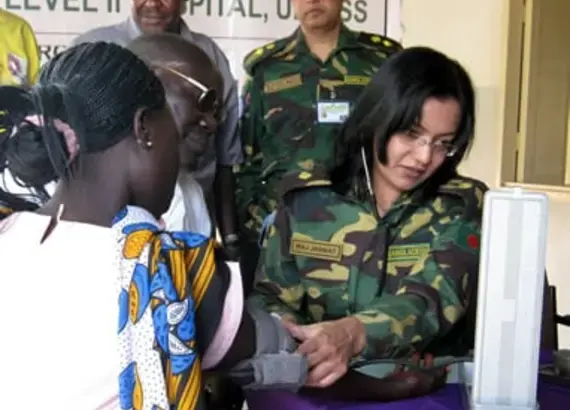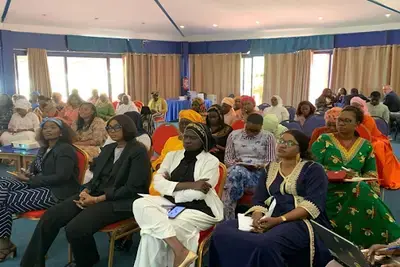
Success Story
Responding to Citizen Concerns, MPs Work to Expand Health Care in South Sudan
Doctors and nurses from a U.N. hospital in South Sudan are treating patients in Munuki and Kator, two communities outside the capital that had no access to health care until now. The presence of the hospital staff grew out of a town hall-style meeting that was a first-time opportunity for residents of those communities to meet with their elected members of parliament.
These meetings, known as constituency dialogues and organized by the South Sudanese Network for Democracy and Elections (SuNDE), in partnership with NDI, are new in South Sudan. During the session in Munuki, MPs described how the three branches of government work and explained what MPs can and can’t do — something that citizens may not yet be familiar with in the world’s newest democracy. When the floor was opened for questions, lack of access to health care topped the list of constituents’ concerns.
After the dialogue, SuNDE and NDI organized a meeting with MPs to figure out how to address that problem. MPs reached out to the Bangladesh Army Medical Corps, which staffs the U.N. mission’s hospital in Juba, the capital, and then met with the state health minister to see how the two could partner. The government reached an agreement with the hospital staff for them to provide medical care in those communities.
The program began Feb. 27. Hospital staff are in Munuki on Mondays and Kator on Wednesdays. Doctors provide preventative care as well as basic surgeries. More complex cases are referred to the U.N. hospital for treatment. All services are free.
At a ceremony inaugurating the program, Hastin Yokwe Anisio, deputy speaker of Central Equatoria State where Munuki and Kator are located, thanked the Bangladeshi corps for going above and beyond their mandate. "I hope our people will benefit from this service," he said.
Tongum Rombek , one of the MPs present at the dialogue, emphasized that this solution had originated with the people. “The constituency dialogue connected me with a large number of people,” he said. “They asked questions and we explained to them what we can and cannot do.”
SuNDE and NDI plan to hold 120 constituency dialogues in all 10 states of South Sudan in the coming year.
Related:
Published March 8, 2012



